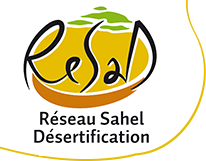The Land-Drought Nexus: Enhancing the role of land-based interventions in drought mitigation and risk management

Présentation du document
"Drought is one of the major drivers of global food and water insecurity, affecting agricultural production and access to food and water. Drought can, in extreme cases, force people to abandon their land, resorting to migration as their last livelihood strategy1 making the prospect of ending hunger and malnutrition by 2030 more difficult. Land management offers opportunities for mitigating the effects of drought and, more generally, refocusing actions on “proactive drought management”. It also increases the resilience of people and ecosystems to drought.
By relevant decisions, the thirteen session of the Conference of the Parties of the United Nations Convention to Combat Desertification (UNCCD) requested the Science-Policy Interface (SPI), as objective 2 of its work programme for the biennium 2018–2019, to provide technical guidance to Parties to support the adoption and implementation of land-based interventions for drought management and mitigation.
Overall objective
The objective of the technical report is to provide a comprehensive review of existing synthesis reports and primary literature in order to: (a) highlight the potential of land-based interventions to mitigate the effects of drought by increasing the resilience of ecosystems and the socioeconomic well-being of populations; and (b) provide guidance to support the adoption and implementation of land-based interventions for drought management and mitigation in the context of LDN. This is a planned contribution to the Work Program 2018-2019 of the UNCCD’s Science-Policy Interface (SPI).
Following an extensive scientific review, the SPI, conducted an assessment of 14 categories of sustainable land management measures in four land use types (crop, grazing, forests and woodlands, and mixed land use), which builds on existing United Nations Convention to Combat Desertification initiatives in the context of land degradation neutrality. The outcomes of this assessment provide a scientifically sound basis to understand how land management can contribute to drought mitigation and risk management, leading to a proposal for a new concept of Drought-smart land management (D-SLM) and practical guidance for scaling up D-SLM."
Publications du même éditeur

Note scientifique et politique: Le rôle central du carbone des sols

Science and Policy brief: Pivotal Soil Carbon

Terres en équilibre

